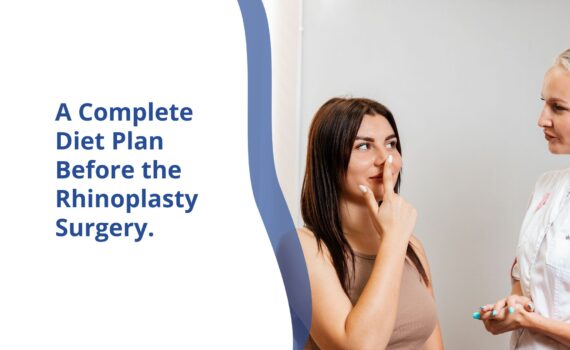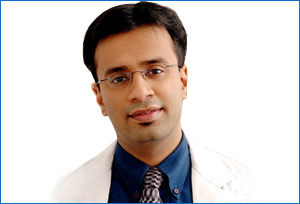
A Complete Diet Plan Before the Rhinoplasty Surgery?
Optimizing Rhinoplasty Surgery Recovery: A Comprehensive Guide to Pre- and Post-Surgery Diet and Lifestyle
Rhinoplasty does not begin or end at the surgeon’s clinic only or with the rhinoplasty surgeon in Mumbai’s work in the operating room. To have the best results, you will have to take a few steps back a few weeks before the scheduled date of the surgery and after the consultation with the rhinoplasty surgeon. This is the first stage of a full and good recovery.
Before and after the rhinoplasty surgery, you have to be very careful with your diet and daily activities to ensure a good result without any problems with the functional and cosmetic aspects, as desired. A nose specialist doctor in Mumbai will help you with preoperative rhinoplasty, which is normally two to four weeks before the scheduled date of the surgery, guide you towards a healthy lifestyle, and ensure that necessary nutrients are added to your routine during this period. Your food and habits before the crooked nose surgery in Mumbai will have a direct impact on the recovery and minimize or increase discomfort. Here are some ways in which food affects rhinoplasty surgery recovery.
- Nutrient intake: Rhinoplasty surgery works with skin, bones, and cartilage in the nose, and for proper healing, a balanced diet helps in tissue repair, collagen production, and improving immune function. The diet should include nutrients, vitamins, and minerals, along with vitamins C, A, and zinc, which aid in faster healing. Include proteins along with vegetables, fruits, and whole grains to prepare the body for surgery stress.
- Reduces inflammation: Certain foods have anti-inflammatory properties that can help minimize post-operative swelling and discomfort. Foods rich in omega-3 fatty acids (found in fish, flaxseeds, and walnuts), leafy greens, berries, and spices like turmeric and ginger may help reduce inflammation, promoting faster recovery.
- Hydration: Staying hydrated is essential for overall health and healing. Drinking an adequate amount of water helps maintain hydration levels, aids in the elimination of toxins, and supports tissue repair. Proper hydration can also help prevent complications such as dryness in the nasal passages during the recovery period.
What you eat and drink is important. The aim should be to stick to the routine. If you are already on a strict diet, then increase the amount you eat to help with the healing after rhinoplasty surgery. Here are some tips on what to eat and what not to eat.
- Decrease the salt intake in the weeks leading up to rhinoplasty surgery in India. Salt increases the blood pressure, and it can increase the risk of surgery.
- Avoid garlic, as it can make your bruise easier.
- Increase protein in your diet, as protein helps with tissue healing. Protein is a building block of our body and makes organs, tissues, hormones, enzymes, and red blood cells. Proteins like chicken, eggs, soy, red meat, daal, beans, legumes, tofu, skim or low-fat milk, yogurt, nuts, cereals, etc. are a good idea. In a normal diet, women need 50–60 grams of protein per day and men need 70–90 grams per day, and the calculation is about 0.5 grams per pound of body weight. With the upcoming surgery, this intake should go up by 50–70 grams per day.
- Carbohydrates such as bread, beans, whole-grain pasta, brown rice, etc. should also be included in the diet.
- Vitamins should be taken in a balanced manner. Large amounts of Vitamin C help in wound healing, but excess Vitamin E can increase the risk of bruising and bleeding; hence, ask your rhinoplasty surgeon about which to take and which to avoid.
- If you are on homeopathic supplements, then tell the surgeon about them. The same goes for herbal remedies, which have untested ingredients and increase the chance of delayed healing, bruising, and bleeding. Some dietary supplements or herbal remedies may interact with medications prescribed during the recovery period. It’s crucial to discuss any supplements or herbal remedies you’re taking with your surgeon to ensure they won’t interfere with the healing process or any prescribed medications.
- Avoid medications such as aspirin, Advil, ibuprofen, and Naproxen.
- Avoid high-fiber meals 24 hours before the surgery. It is crucial to keep the stomach empty before the surgery.
- Drink at least 3–4 liters of water every day and avoid any carbonated drinks.
Avoiding Certain Foods: Some foods and beverages can potentially interfere with the healing process or increase the risk of complications after rhinoplasty surgery. These may include:
- Sodium-rich foods: Excessive sodium intake can lead to increased water retention and swelling. Limiting salty foods can help reduce post-operative swelling.
- Alcohol: Alcohol consumption can interfere with the body’s healing process, impair immune function, and increase the risk of bleeding and bruising. It’s generally advisable to avoid alcohol during the initial stages of recovery.
- Spicy foods: Spicy foods might irritate the nasal passages and increase discomfort during the early recovery phase. Avoiding excessively spicy foods can help minimize irritation and inflammation.
- Stay away from caffeine and artificial sweeteners, as they can interfere with the results of the surgery.
- Stop smoking, as it can impair the ability to heal. Stop smoking four weeks before and after the rhinoplasty surgery. You should also avoid nicotine patches or any nicotine-based products before the rhinoplasty surgery.
Practice good skin care before the rhinoplasty surgery. Make sure that you apply sunscreen regularly and moisturize your skin morning and night. Don’t skip the cleansing and toning routines before and after the rhinoplasty surgery.
Here is a sample pre-rhinoplasty diet.
Breakfast:
Option 1:
- Oatmeal topped with berries (blueberries, strawberries, or raspberries) and a sprinkle of nuts (almonds, walnuts, or pecans).
- A boiled or poached egg on the side for added protein.
- Herbal tea or water.
Option 2:
- Greek yogurt with sliced fruits (bananas, kiwi, or mixed berries) and a drizzle of honey or a sprinkle of granola.
- Whole-grain toast or whole wheat bread.
- Freshly squeezed orange juice or a smoothie made with spinach, banana, and almond milk.
Lunch:
Option 1:
- Grilled chicken or tofu salad with mixed greens, cherry tomatoes, cucumbers, bell peppers, and a light vinaigrette dressing.
- Quinoa or brown rice on the side.
- Herbal tea or water.
Option 2:
- Whole grain wrap filled with hummus, assorted veggies (lettuce, spinach, bell peppers, shredded carrots), and lean turkey or roasted vegetables.
- A side of mixed fruit salad (pineapple, grapes, and melon).
- Green tea or infused water.
Dinner:
Option 1:
- Baked or grilled salmon seasoned with herbs and lemon.
- Steamed or roasted vegetables such as broccoli, asparagus, and carrots.
- A small portion of sweet potatoes or quinoa.
- Herbal tea or water.
Option 2:
- Stir-fried tofu, low-fat paneer, or lean chicken or beef with a variety of colorful vegetables (bell peppers, snow peas, and mushrooms) in a light sauce served with brown rice or cauliflower rice.
- A side of steamed vegetables or a mixed green salad.
- Herbal tea or water.
Snacks (optional):
- Fresh fruit like apples, oranges, or grapes.
- Nuts (in moderation), such as almonds or walnuts.
- Greek yogurt or cottage cheese.
- Hummus with carrot or cucumber sticks.
Before and after rhinoplasty, it’s beneficial to consult both your surgeon and a registered dietitian. Your modern rhinoplasty surgeon can provide specific dietary recommendations tailored to your individual needs and recovery process, while a dietitian can help create a well-balanced meal plan that supports healing and minimizes potential complications. Ultimately, while diet is essential for supporting recovery, it’s just one aspect of a comprehensive post-operative care plan. Following your surgeon’s instructions regarding activity limitations, proper wound care, and attending a follow-up appointment


